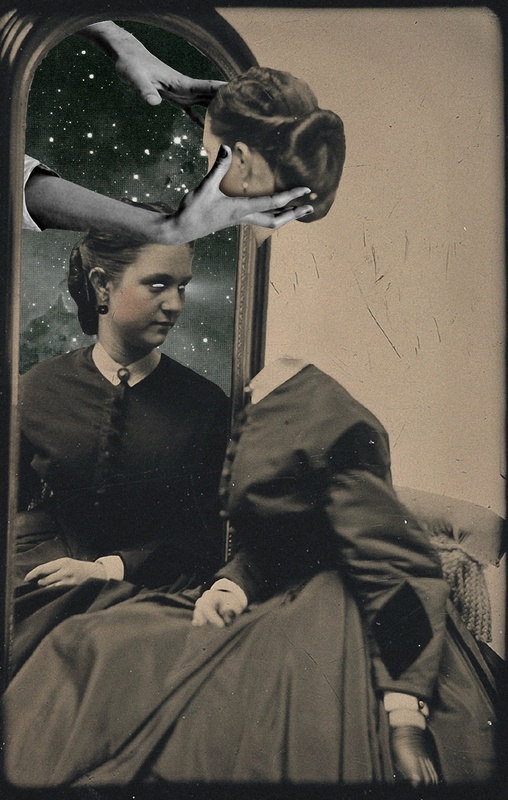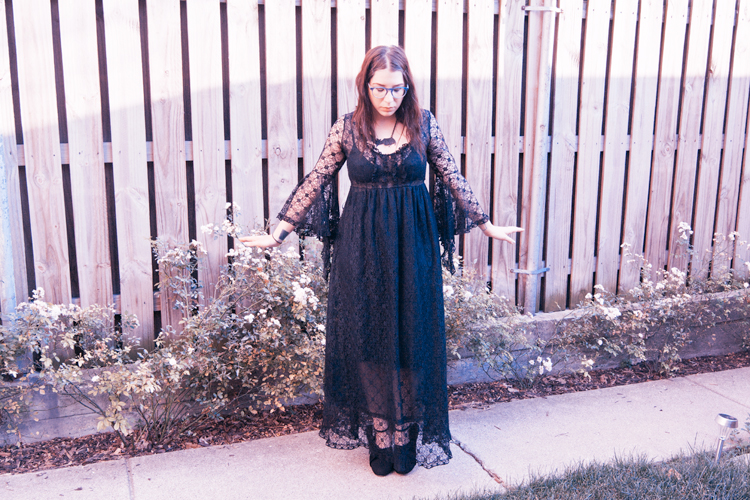Translated by Martina Del Romano
Vuoi leggerlo in italiano?
7

How much time do we waste explaining to annoying or just plainly curious people what it means to be a feminist and why we have chosen to define ourselves as such ? In my case, a lot. So much that, at times, I would love to just shout back a “Google it, for fuck’s sake!”. This country [Italy] is full of people who, intentionally or not, don’t know a thing about the history of feminism, and in my opinion this is a humongous problem. “Why is that?” someone would say.
Well, first of all, it doesn’t take witches and wizards to understand that there’s a clear connection between the widespread sexism in which, willfully or not, we find ourselves living and the bad reputation feminists have in our society.
Secondly, always having to start the discussion from Ground Zero – where we have to explain why feminism exists and is needed in the first place, and that is not at all about hating men – prevents us from actually going somewhere useful with the discussion, and it becomes an obstacle on the road to new ideas, opinions and projects.
There are a lot of good Italian feminist blogs and I always read them thoroughly, both to keep myself up to date and to feel part of some kind of community able to put things (and people) in motion when the necessity arises. I must admit, though, that what I really miss are the stories. Stories about how people who define themselves as feminists live their everyday lives, stories about the big or little compromises they find themselves guilty of making.
Despite being the first to always go on and on about how feminism is not a set of rules and that I became a feminist first and foremost in order to feel better about myself, there are situations in which I happen to do certain things and then bash myself the minute after, saying: “It wasn’t the feminist thing to do”.
I’ll give you a stupid but effective example.
The night of the Macchianera Italian Awards (a contest for best post/blog/magazine), Valeria, Marta and I* went dancing in what, in 2005, would have been called “a bloggers’ hideout”. We were ecstatic, not only for the brilliant outcome of the Awards (we got second place in the award for best post!), but also for being all three together in the same place and for having met so many cool people.
Personally, I was over the moon because I could finally dance with my friends, and on top of it all there was a really good playlist put together by Rolling Stone‘s Fabio de Luca, something I had been looking forward to for days.
Now, you know better that me how hard it is to just dance in peace with your gurlz, without having to be harassed and hit on by annoying men. That night wasn’t indeed different and we were all approached in turn by a series of weird guys that tried to hit on us using pick-up lines such as “Wow, you know Joy Division, that’s so cool!”. I had a particularly persistent one come up to me and try to make me “his” by putting on my head his Discovery Real Time sponsored hat, and, not satisfied, he also dared to tell me to “make an effort” to look him in the eyes while I danced. I was exhausted and also quite drunk, but I still wanted to have fun, so my priority was to get him off me and keep having a good time. But the guy just didn’t seem to get the (very clear) hint.
I’m still unable to say “go to hell” to anyone without caring too much about good manners, so I made one last try to get him off me by telling him that I had a boyfriend. He answered back – with great finesse – that “It wasn’t really a problem” for him, but then he finally gave up and went away.
Watching the guy walk away got me thinking that what I said wasn’t the feminist thing to say at all, and I felt extremely guilty for it.
Beside the fact that, in that precise moment, to declare that I had a boyfriend brought back painful memories of my personal romantic misfortunes, the problem here was using this hypothetical partner-scarecrow as some kind of annoying-men-repellent. In an ideal world, I should be left alone when I ask to be left alone, whether or not I’m single, married, naked, alone, with my friends or dressed as a racoon. Period.
But because too often than not, the aforementioned annoying men choose not to get the hint and keep on hitting shamelessly on girls like me – who are too polite for their own good – it’s necessary to communicate our own indisposition in a clear and comprehensible way.
Many times, to say “Look, I have I boyfriend” brings along a lot of nefarious implications with it. For example:
- I belong to another man (implied meaning: I’m not my own)
- If you don’t leave me alone, my boyfriend will come and kick the shit out of you (implied meaning: I can’t defend myself)
- If I didn’t have a boyfriend, I’d be very interest in you
And of course the last thing I wanted was to become – in that guy’s head – just another weak girl that maybe would have gone with it, but unfortunately had sworn fidelity to her dear boyfriend. I didn’t want to turn into some cardboard figure version of myself, someone that, just to make things easier for herself, would be incapable of asking the due respect for herself and the whole of her gender. But because I was exhausted and brought up to be always overly polite, I couldn’t tell him to go to hell and instead I found myself saying what, in my head, was the worst possible thing I could have said. Something that unfortunately worked like a charm, as it often happens when it’s a matter of principles (and not of what works best). I thought again and again about this and other similar episodes, trying to reconcile the relief I felt when I was finally left alone with the feeling of guilt that came with the realization of having done something totally against my firm feminist principles.
After processing it for some time, I came to the conclusion that I didn’t choose to be a feminist: it was inevitable. As the years went by, in both feminist theories and practices, I found bits and pieces to hold on to, bits and pieces that helped me have a better, healthier relationship with myself and other girls. I understood so many things about myself, about my self-imposed limits and about the potentialities I’ve always had but from which I’ve never drawn. I realized that the world is full wonderful women and girls whom I hope I’ll get the honour to have in my life somehow.
For me, feminism is a safety net, a flexible and cozy place, ready to accept and embrace me as the flawed but good-willed individual that I am.
When someone critics Soft Revolution saying that our way to do feminism is not “true feminism” because it’s “too soft”, I get mad because I think there’s nothing worse for the movement itself than having people trying to decide for everyone what is and what isn’t feminist. The same goes for those comments that try to invalidate what the author of the article is feeling. For example, if a girl writes about her fear of walking home alone at night, even if it’s highly improbable that something would happen to her, I get extremely annoyed when people comment saying “you know it’s very unlikely that something will happen to you, so you mustn’t be afraid, you must be strong”.
And what is implied in this answer is that a feminist girl could never, should never be afraid. A feminist girl must always be strong, must always be invulnerable.
Truth is we need a shield made out of diamond if we want to be invulnerable. We need a safe and welcoming environment. We need a strong safety net, without holes through which we may fall into the vacuum.
Sometimes, when I read something written in the name of Italian feminism, a movement that makes itself be heard mostly online, what I find myself missing is the admission of our flawed nature.
Whenever someone tells me that there are things I shouldn’t write on Soft Revolution because they would give the wrong idea to girls about girls, because it would mean showing weakness, I ask myself: does it make sense to deny part of ourselves? And for whom? For what purpose?
I don’t want to be respected by pretending to be someone I’m not. I don’t care about an equality reached by proving to have all the qualities usually associated with masculinity. I want respect for little girls, teenage girls and women of all ages, and I want it to be widespread and understanding of all the individual differences. I want that girls dressed in pink from head to toe be celebrated as much as those who wear “masculine” clothes. I want to be able to say I’m afraid whenever I’m afraid, without anyone telling me I’m not being enough of a feminist. And I want to learn from my mistakes. I want to talk about them and share them and understand if they are just mine, if it’s just me feeling that way after making them. I want space for our mistakes, to think them through, to learn from them and constantly improve myself. I want to understand how to be a stronger, more welcoming safety net for others, a better ally to those who live under a different kind of oppression.
Well then, at this point, I think the feminist thing to do is to look straight in the eye the cultural background that wants us reduced to a handful of accepted and acceptable stereotypes and tell them that we are, in fact, much more complex than that. We are much more diverse from each other than what it seems when we talk about women in an abstract way (ex: “the women’s situation in Italy”), we are much more tangible and real than that.
So now, my own feminist thing to say is that I make a lot of mistakes and I’m trying to improve, and this journey I’m on is making me appreciate humanity so much more than what I could have ever imagined.
*Marta Corato, Valeria Righele and Margherita Ferrari, who make up what we like to call “The founding trinity” of Soft Revolution [ndt].





Nessun commento